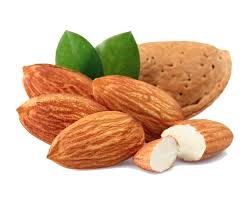Honey Uses and Benefits in Our Daily Life
learning new
March 04, 2021
There's a massive range of honey out there, each with good colour, consistency, flavour (reflecting which flowers honey bees visit ), an active ingredient. As a rule, the label so knows the source and avoid the blends that aren't pure ." Honey, which can be from his home, often guarantees Quality," advise a beekeeping brand co-founder James Annabel. "choose sustainable honey that protects the environment, bees and the people working to get it on your shelves".
"Honey is a mix of 80 per cent natural sugars (Glucose and fructose), 18 per cent minerals, vitamin, pollen, and protein," explains nutritionist Christine Barley. Its biggest appeal is as a natural alternative to refined sugar. Fructose and glucose are both simple carbohydrates, making honey a natural energy booster. but because it contains a higher proportion of fructose than refined sugar, honey is slightly lower on the Glycaemia Index, which means it is marked blood sugar level rise and fall more slowly .this makes blood sugar level rise and falls more slowly. This fast-re-leasing glucose and slower-resealing fructose may support workout .studies show this combination may improve performance in prolonged cycling compared to glucose alone ."
Most of us have sipped a mug of warm water, lemon, and honey to soothe a sore throat. A 2020 medical journal review backed honey's effectiveness at relieving upper respiratory tract infections, concluding it was" a widely available and cheap alternative to antibiotics".
Many people believe Honey easily digestive complaints (although it may exacerbate IBS symptoms ) .bailey says," Reachers suggest honey may help stop acid reflux and aid with reducing diarrhoea." A 2013 study showed manuka killed bacteria associate with food poisoning. That's because this thick, dark New Zealand honey has potent antibacterial properties, thanks to a substance called methylglyoxal (MGO). The higher the MGO number, the more powerful it is.
Honey is well-established as a wound healer and many healthcare systems use medical-grade honey in sterile dressings. A 2020 review found it had anti-inflammatory effects, decreased pain, and shortened healing time for wounds. All kind of honey is to some extent, with manuka most effective," says Thornton-wood. This is partly due to the chemical, hydrogen peroxide. "This is traditionally used by antiseptic, but it is found in honey at a level that is very low, " says pam Hunter, microbiological and manager of research at the British Beekeepers Association. Honey also draws liquid out of wounds and stops dressings sticking."That she does not recommend apply raw honey over scraped knees. It needs to be irradiated so there are no contaminating organisms.
Popular Posts

Almond Uses and Benefits
March 12, 2021

What is Intermittent Fasting?
March 09, 2021

Honey Uses and Benefits in Our Daily Life
March 04, 2021
Categories
Menu Footer Widget
Designed with by Way2Themes | Distributed by Blogger Themes

1 Comments
Nice Madhu....Good ......keep it up👍
ReplyDelete